I’ve tried a lot of different discussion strategies, some of them more effective than others. This year, Socratic seminar is my favorite. Let’s take a moment to establish a clear Socratic seminar definition.

Socratic Seminar: What is it?
Socratic seminar is a powerful, student-led strategy for your English language arts classroom. After reading one or more texts, students come together to co-create meaning through discussion.

Prior to discussion, students can determine one or more discussion questions, or the teacher might have students begin with a general question of quality, value, interpretation, or synthesis.
A Real-World Socratic Seminar Definition
Let’s break it down.
5 reasons why Socratic seminar will forever have my ♥️:
- Socratic seminar doesn’t get boring. Switch-up the text, conversation partners, questions, and every discussion is a new collaborative learning opportunity!
- It’s low prep. Let’s face it, teachers don’t have time for high-prep activities every day…I’m all about keeping discussion activities for middle school and high school simple when possible – save the cutting and gluing for another day (or my teacher’s assistant).
- Students take responsibility for their own learning. Enough said.
- Students apply real-world discussion skills. In real life, conversation is not all about proving a point or being argumentative. There’s a time and a place for that. I think it’s safe to say that most real-world conversation is transactive and built through collaboration.
- Reading is valued. Socratic seminar discussion gives a natural outcome for the reading process. Students create their own Socratic seminar questions. The reading-discussing cycle allows students to pursue greater depth in reading and discussion.
7 Tips for Discussion Success
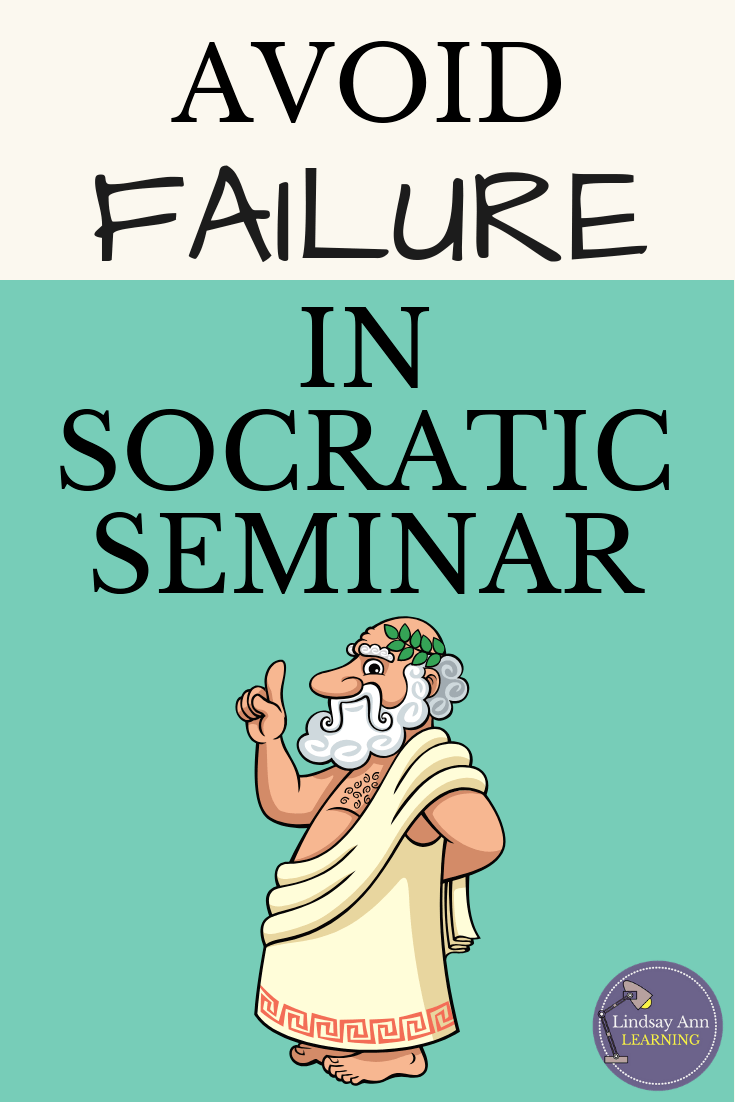
Maybe you’re new to the discussion game and just need a clear Socratic seminar definition. Maybe you’ve tried this strategy with limited success. I hope that you can learn from my previous failure in using Socratic seminar. Here are my tips from the English classroom trenches:
- Set-up for success. Students should be facing each other in a small group of desks or in a circle. Make sure students have a surface to write on. I know it may be tempting to place your chair IN the group with the students. Don’t. Do. It. Trust them and trust the process that asks them to lead the discussion without looking to you for approval or to see if they’re saying the “right” answers. I purposefully place my chair away from the group and outside the circle of student listeners (but still close enough to hear).
- Train students to succeed. At first, students will be white-belts in Socratic seminar. You must establish a clear Socratic seminar definition and Socratic seminar rules for students. To do this, model, model, praise. Model reading and annotation strategies. Model use of discussion stems and discussion behaviors. Praise the heck out of students who are demonstrating effective discussion, i.e. adding value and depth, building on the ideas of others, asking follow-up questions.
- Prepare like a Boy Scout. Give students time to read and mark the text. Use the QFT model to help learners generate awesome Socratic seminar questions through inquiry. Set clear expectations and norms (This can be a student-led process, as well!).
- Choose “discussion-worthy” texts. Sometimes, the difference between success and failure in a Socratic seminar is all in the quality of your chosen text(s). You want to make sure that the meaning of the text is not clear. i.e. Choose texts that are open-to-interpretation. Choose texts that invite inquiry. Choose texts that are accessible, yet challenging. I’ve found success with paired texts (poems, short stories, TED talks, primary source documents, etc.) that have similarity or contrast. I have also found success with singleton short stories that are ambiguous in their meaning. Some of my favorites include “There Will Come Soft Rains”, “The Interlopers”, “To Build a Fire”, “The Story of an Hour”, “The Lady or The Tiger”, “Click Clack the Rattlebag”, and “A Very Old Man with Enormous Wings.”
- Don’t be a helicopter teacher. Keep your voice in the discussion to a minimum. Your role is to remind about procedures as necessary and help to determine which open-ended questions students will explore in Socratic seminar discussion. Although it may be tempting to offer your own thoughts, to redirect or to “save” students, I find that this reinforces the idea that YOU are in control of the conversation vs. the students. If you’re jumping in to save, paraphrase, redirect, then you’re really just robbing students of the opportunity to learn and practice these skills for themselves. Yes, you’re even robbing students of the opportunity to fail.
- Engage every student. If a student is not participating in Socratic seminar, s/he should not be tuned-out. Give listeners a focus. Here are some ideas: Have listeners and take notes to show how their understanding of the text is developing. Have each listener track the ideas and participation of one of the discussion participants and provide feedback after the discussion is over. Have listeners participate in a back channel chat. Have listeners complete a Google Form listener response. You may even blend the Socratic seminar and pinwheel discussion strategies, rotating students in and out of the discussion (keeps them on their toes!).
- Encourage self-reflection. Leave a few minutes at the end for students to reflect on their learning and participation. This reinforces that you value learning, discussion skills, growth mindset, and a learner-centered classroom. Have students set a goal and track progress over time.

Socratic Seminar Teaching Hack
To add to your teacher’s Socratic seminar definition, what about keeping track of student comments? No worries! I’ve fine-tuned a method for tracking student participation that works really well, using Google Sheets. Check it out!
Socratic Seminar Resources
The above tracking spreadsheet, along with my graphic organizer bundle is available HERE. For use with any text(s), you’ll have everything you need to get started (or be a bit more efficient and effective) with Socratic Seminar.
Socratic seminar handouts, discussion stems, role cards, norms and expectations slideshow, editable Socratic Seminar rubric, and my best hacks for tracking student participation and comments are ALL included!
But Wait…haven’t you forgotten…
But wait, you might be saying. You haven’t even talked about assessment in your Socratic seminar definition?!
I’m going to say something potentially controversial. It doesn’t matter.
It doesn’t matter.
In alllll of my years teaching, I don’t think that a grade has helped my students to perform better in Socratic seminar.
Feedback matters, though.
And I do understand that we live in a grade-based culture.
Here’s my compromise:
To keep it simple, I tally student responses during conversation to track discussion behaviors and skills. I talk with students about what goals they’ve set and provide tools and resources for them to meet these goals. I purposefully group students during discussion. Then…
- I “grade” the quality of their self-reflection rather than the discussion itself.
- I grade students on their progress and improvement.
- Or, I have students “grade” themselves on the rubric, providing evidence that they’ve demonstrated the skills. This allows for student self-reflection as a part of the assessment process.
What I don’t do…I don’t set up a beautiful, learner-centered discussion activity and place the MOST value on the grade. It’s not about the grade, but it is about the learning!




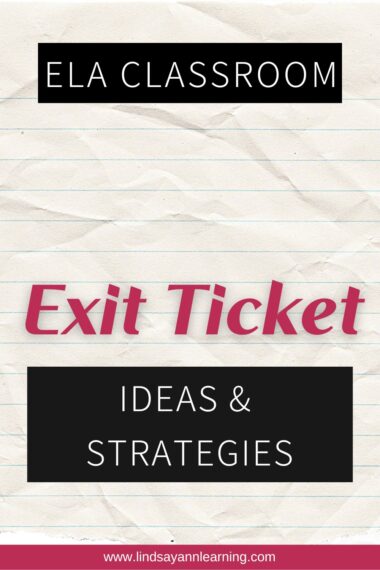
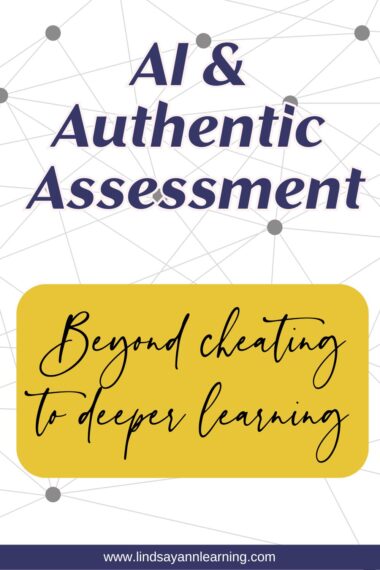
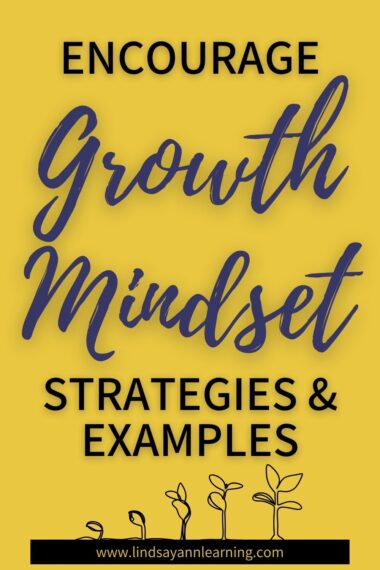
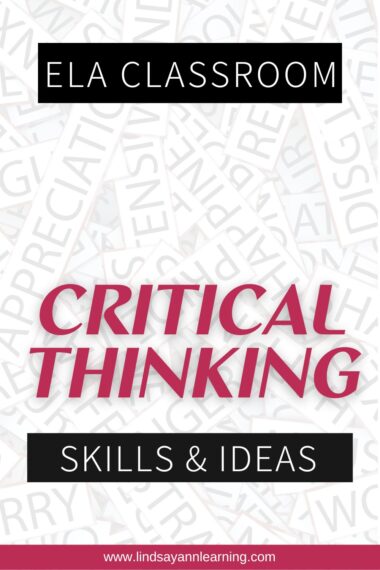








 Here’s the BEST Way to Use Middle School Reading Strategies
Here’s the BEST Way to Use Middle School Reading Strategies
I can’t wait to get started. What grade do you do this with? Where do you get your questions from?
I’ve done this with my high school students (10th grade), but have seen it work well with middle school students, as well. The questions can be generated by the students, or I simply like to begin with the question of “What does this text mean?” or “Why is this text important?” Good luck; it’s so much fun to see how students take ownership of these discussions!